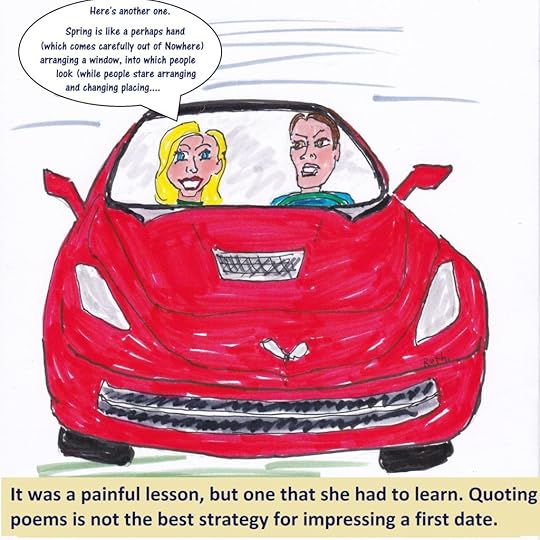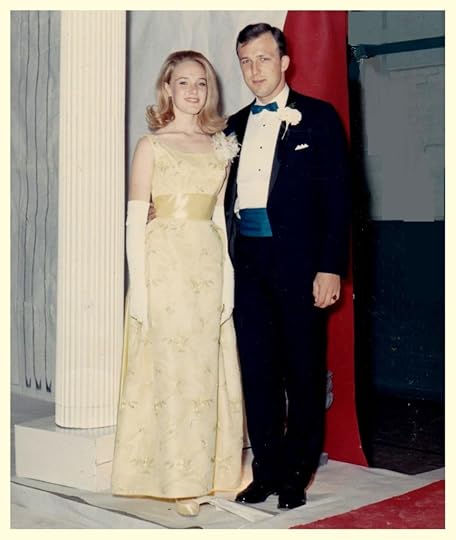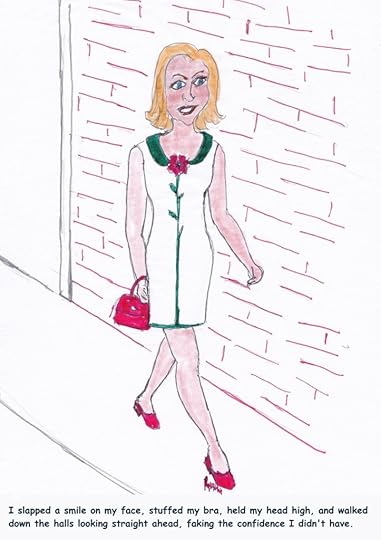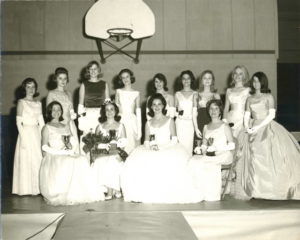Ruthi Postow Birch's Blog, page 15
September 5, 2017
My Daddy’s Blue-Collar Lesson For Success: Acceptance and Respect for People
The ability able to connect with people is critical to success in almost any career, and knowing when to keep quiet is key to connecting with people. Humor is another important quality, and I learned that too by listening to Daddy.
I was about to write about humor as key to success when the events of the past weekend brought to mind another lesson. I grew up in south Alabama with parents who had also grown up in the Deep South. They taught me a lesson that comes first and is far more important to success in business and in life than any of the others: Have respect for other people. I looked up the word respect.
Respect: due regard for the feelings, wishes, or rights of others.
But that definition didn’t take me close enough to what I learned from Mama and Daddy about how to treat people. So I looked up the word acceptance.
Acceptance: the action or process of being received as adequate or suitable, typically to be admitted into a group.
Before you can treat a person with respect, you have to accept that the person in inherently adequate and suitable, just as he or she is. Mama and Daddy showed me what it meant to receive people as adequate and suitable.
A few years ago, I got what I think was the best compliment of my life. I was at lunch with my boss who was in a terrible mood. She started by railing about some piece of business we had lost, but she got on a roll and expanded her rant to include mistakes I’d made going back a year. I finally said, “Enough. Say something nice to me or I’m going back to the office.”
She looked at me thoughtfully for a second and I expected she would say something acknowledging that I was the company’s top revenue producer. But she didn’t. She said, “You are the least judgmental person I’ve ever met. You accept every person you meet, just as they are.”I don’t know if my boss knew what a compliment it was or that it wasn’t actually my compliment. It belonged to Mama and Daddy. I was just living what they taught me. It’s not that they ever preached about it. They didn’t, and I don’t remember them ever saying the word acceptance. Their lessons snuck in when I wasn’t looking for them.
We lived in a segregated society where black people and white people were separated and acceptance wasn’t universally applied. Segregation was just the way we lived and I, a nine-year-old, didn’t think about black people much, until I got several unexpected messages from my parents.
On Saturdays, Mama worked at the grocery store and I went with Daddy on his errands. One Saturday, our first stop was to visit a man in the hospital who worked with Daddy. The man was black. Daddy didn’t act like us being there was a big deal. He talked with the man just as he talked to anybody else. He talked about the goings on at work, asked about his health, and made a joke at which they both laughed. Then we left. I asked why we went to see the man. Daddy said, “Because he’s sick.”
Daddy’s lesson stuck. People who are different and couldn’t even go to school with me were worthy of acceptance and respect. Over the years of my childhood, I learned a score more little lessons that Mama and Daddy didn’t even know they were teaching. Sometimes when we were riding in the car, I overheard snippets of conversation. Once I heard Daddy telling Mama something about a black man who owned successful businesses in Mobile, and was, “one good businessman!”
Mama added fairness as another component of respect when I heard her ranting about the DAR not allowing Marian Anderson to appear on their stage. “They should let the woman sing. It’s not fair! It’s not right.”
One afternoon, I was with Mama when we left the home of a seamstress who was taking in some hand-me-down clothes for me. The two women had hit it off and talked for an hour, and Mama left that house angry because she knew they wouldn’t be in places where she could talk to the woman any time she wanted to.
I realized, when I was grown, that the littlest actions my parents took without sermon or fanfare were so powerful in making me who I am. The values they expressed when that said seemingly inconsequential things I wasn’t even intended to hear became entrenched in me.
I made my career in a people business. Whatever success I’ve had has depended on my ability to attract, relate to, and work with all kinds of people. I’ve been able to do that because I learned about acceptance and respect from working-class people on Petain Street in Prichard, Alabama.
The post My Daddy’s Blue-Collar Lesson For Success: Acceptance and Respect for People appeared first on How To Build A Piano Bench.
August 21, 2017
Blue-Collar Advice For Success In A White-Collar Career
My daddy was a tug-boat captain. He didn’t go to college and he never worked in an office. But Daddy had down-home wisdom that he passed on to me. His lessons are as plain as the khaki uniforms he wore to work, and I am constantly surprised that so many people never learned them.
I spent my career in the staffing business, and over the years, I’ve met hundreds of people who needed some blue-collar educating if they were going to get what they wanted in life.
“Keep your mouth shut,” was one of his keynote lessons.
As soon as I was old enough to talk, Daddy started telling me about the times I shouldn’t. This worked to kept me out of all kinds of sticky situations.
Keep your mouth shut ~

when you’re about to bash an old boss on a job interview.
I was interviewing an executive assistant for my client. She seemed to be a good fit for the job. Then she explained to me that her old boss was immoral. “I went into his office one day to drop some papers, when he’d stepped to the men’s room. I saw his computer screen. It had pornographic pictures of women on it. I was so shocked that I told him I was sick and took the rest of the day off.”
I asked if the boss ever did or said anything off-color to her? No. Did he ask her to go into his office? “No, but I did. And I saw it. And he is immoral. And I certainly don’t feel obligated to keep his secret.” Each and levied a harsher judgment.
Keep your mouth shut ~
 when you don’t know what you’re talking about.
when you don’t know what you’re talking about.
It’s so simple that you’d think everybody would have gotten the message. But, no, they didn’t.
Mary, for example, proved she didn’t get the message when she interviewed for a job at Bendix Aerospace. Bendix had once made kitchen and other appliances, but hadn’t in many years.
JO, the office manager, never wanted a candidate to leave feeling bad about the interview: “I give every person I interview a packet of information on our company. Even if I know I wouldn’t hire them, I do it so they leave feeling good.”
It was a nice gesture that was generally met with appreciation, until Mary came in. As Jo explained, “When I offered her the packet, she flipped her hand up and said, ‘I don’t need it. I know Bendix makes refrigerators, and that’s all I need to know.’”
(Actually I knew they were aerospace, but thought they still made refrigerators too. I kept my mouth shut.)
Keep your mouth shut ~
 instead of telling people your personal business.
instead of telling people your personal business.
“Baby,” Daddy told me, “if you don’t want the boss minding your personal business for you, keep your mouth shut about it.”
I explained this to countless candidates who, on job interviews, blurted out all kinds of personal, and unsolicited, information, about their commutes, children, husbands, divorces, illnesses, and personal problems.
The HR manager was just about to make a job offer, and told the candidate information about the company including that the hours were 8:30 to 5:00. Instead of keeping quiet, the candidate mused aloud:
“Oh. Yeah… okay. Well, my children have to be at school at 8:30. That means they will have to eat breakfast, then be at the bus stop…”
The HR manager asked him, “Does that mean you can’t be there at 8:30?”
“Oh, no,” answered the candidate, “My wife will get them off. I was just thinking out loud.”
By the time the candidate called me, I’d already heard the story from the manager. All I could say was, “You could have had the job. Why didn’t you leave your kids at home?!”
“You can’t be judged for what you don’t say, so keep your mouth shut.”
Some people couldn’t be helped. I was interviewing a woman who started telling me, in graphic detail, about her divorce. “It was terrible. My ex-husband wouldn’t leave me alone. He called me at all hours. When I wouldn’t take his calls, he came to my home and kept me up all night fighting. It was awful! It was like he was a stalker. That’s why I left California and moved here.”
I asked, “Was he actually stalking you? Are you afraid he’ll come here and torment you?”
“Oh, no,” she said, “He’s still in California and has a new girlfriend. He hasn’t called me in three months.”
In that case, I told her she didn’t need to go into so much detail. “Stop talking about him. You’re presenting a problem that no longer exists to a prospective employer.”
She said, “Well, it is part of my history and you never know…. He could break up with her and start calling me again.”
Even Daddy couldn’t help some people.
Here are some other times when Daddy said you ought to, “Keep your mouth shut”:

When you ought to be listening.

When the folks you work with are gossiping.

When other people are complaining about the boss.
The post Blue-Collar Advice For Success In A White-Collar Career appeared first on How To Build A Piano Bench.
August 7, 2017
What You Learned From Bad First Dates Will Now Result In A Good Interview
Everybody hates first dates. But getting better at first-dating can change your life – because everything starts with a first date! A job interview is a kind of first date – but without the question of whether to kiss or not. So what you learned on those bad first dates can help you crush your next job interview, your first encounter with future in-laws, or a meeting with sales prospects.

t
Most of us have had embarrassing, but funny, dating experiences because people do and say crazy things under pressure. It’s the same with interviews. In my career in staffing, I’ve counselled hundreds of people as they were interviewing for jobs, and I’ve witnessed some weird things. For example, one woman blurted out this random tidbit, mid interview: “My dreams tell the future.” (The boss didn’t need that particular skill.)
I thought about how people sabotage their own chances, and I remembered some of my first dates that were also “last-dates” because of my own random behavior.
I was in high school, and I had a date with a boy on the football team and one of the most popular boys in school – and he had the coolest car! What did I do as we drove home from the movie? I told him about my passion for poetry, but I didn’t stop there. I quoted poems to him, several poems, my finale being one by e.e cummings.
“In Just- spring
when the world is mud-luscious
the little lame balloon man whistles far and wee
and eddie and bill come
running from marbles and piracies
and it’s spring
when the world is puddle-wonderful…”
 I didn’t need to worry about whether I should kiss him goodnight. But I gained two excellent pieces of advice from the experience. One, don’t quote poetry. Two, and more important, look for the humor in the situation. I knew the chances were pretty good that I’d do something dumb and embarrassing again at some point, and the way to get over it was to lighten up and laugh about it.
I didn’t need to worry about whether I should kiss him goodnight. But I gained two excellent pieces of advice from the experience. One, don’t quote poetry. Two, and more important, look for the humor in the situation. I knew the chances were pretty good that I’d do something dumb and embarrassing again at some point, and the way to get over it was to lighten up and laugh about it.
Sharing too much personal information will almost always leave somebody laughing. On my second day as a staffing trainee, I got to see that first-hand, after our agency had sent a young man to apply for a teller trainee job at the National Bank of Washington. After his interview, we trainees gathered around a speaker phone to listen to the follow-up call from Helen Dwyer, the bank’s venerable director of human resources.
Ms. Dwyer spoke in a voice that sounded like a bassoon that rose emphatically on key words, or even syllables, then dropped a full octave or more as it advanced steadily onward. It dripped drama as she delivered the verdict.
“Ahhh, Yes. I had a lovely meeting with Mr. Smith. He was so very forthcoming. In fact, he shared with me, in great detail, all about his hemorrhoidectomy.” The word came out as music, every syllable distinct, building to a crescendo on the fourth, and the final syllable, a whisper.
 After an uncomfortable silence, Mrs. Dwyer went on, “…and did you know that, after a hemorrhoidectomy, with the first bowel movement, the pain is tremendous?” she bellowed the last word.
After an uncomfortable silence, Mrs. Dwyer went on, “…and did you know that, after a hemorrhoidectomy, with the first bowel movement, the pain is tremendous?” she bellowed the last word.
I knew right then that I was going to love this job! I was right. Watching people never got boring. Another candidate, Kendra had actually passed the first-date stage and was going back at 2 p.m. to meet the head of HR, who I knew was a nice, but fairly humorless, retired army officer.
I was surprised, and disappointed, when the director was already on the phone asking for me at 2:05.
Did she not show up? I answered the phone and he sounded even more uptight than usual. “Kendra was here.”
“What happened?” I asked.
“Wellll,” he said, “She walked into my office and sat down, then she clapped her hand onto my desk and said, ‘I claim this job in the name of Jesus!’”
“What did you do?”
“I hired her.”
Later I spoke with Kendra, and she told me her grandma had given her advice for the interview. “Honey, if there is something wholesome and fine that you want, you just claim it in the name of Jesus and He’ll give it to you if you’re meant to have it.” She did, and He did. (But I don’t recommend this tactic to others.)
Not doing a final wardrobe check has led to many a fun story, as it did for Joe. “I was primed and confident to go get that job. But I didn’t realize my zipper was down. Milly pointed it out. I couldn’t believe it – I had on pink boxers! She pointed that out too. She laughed. She was okay, but from that point on, my game was off. I didn’t say more than ten words the rest of the interview.”
Every relationship, business or personal, starts with a first date. You’re meeting a new person, trying to say and do the right thing to make the right impression, and trying to fit in (when you don’t know what fits in).
After many “first dates” failures, I’ve learned three rules for surviving it and even coming out victorious.
#1 Remember that the other guy is on a first date too.
#2 Listen, but being a good listener doesn’t mean dumping the responsibility for conversation on the other guy.
#3 Laugh.
What “first dates” experiences have you had that you can laugh at now?
What did you learn that can they help make you better at the other kinds of “first dates” that come along?
The post What You Learned From Bad First Dates Will Now Result In A Good Interview appeared first on How To Build A Piano Bench.
July 24, 2017
The Value – and the Costs – of Taking a Stand For What You Believe
It’s funny, I’ve always cared too much about what people thought about how I looked, how I worked, my personality, my writing. But when I faced views or actions I thought were wrong or unfair, I didn’t have the same problem. I didn’t care what people thought if I was taking a stand for something that I really believed in.
 I had a role model who was fearless when defending what she believed was right. My mama was a five foot three, sweet, and soft-looking woman who taught Sunday school. She was also a union leader who marched in picket lines, and stood up for what she believed in to… anybody. She didn’t care who it was – the preacher at the Methodist Church in Fairhope Alabama, my daddy, even an IRS man who alleged that she padded the amount of money she gave to the church.
I had a role model who was fearless when defending what she believed was right. My mama was a five foot three, sweet, and soft-looking woman who taught Sunday school. She was also a union leader who marched in picket lines, and stood up for what she believed in to… anybody. She didn’t care who it was – the preacher at the Methodist Church in Fairhope Alabama, my daddy, even an IRS man who alleged that she padded the amount of money she gave to the church.
The IRS man looked up from Mama’s tax return and said, “Mrs. Simmons, you expect me to that believe a woman who earns as little as you do gives this much to the church?” it was a big mistake to accuse Mama of dishonesty! She pulled out her bank statements and receipts, then stood there, insisting that go through and add up every dollar she had given. She didn’t leave till he admitted that she hadn’t lied.
Taking a stand for yourself or your beliefs has benefits. One is that you feel a little stronger every time. Another is that you feel better about yourself. But there are costs too, especially when you stand up against a person whose beliefs are entrenched. I learned that for myself when I was a senior in high school.
It was just days before my senior prom, my last high school event. I had a date, I had a beautiful dress, and I was excited, although I’m not sure I was as excited about the prom as I was about my dress. Then, a few days before the dance, I no longer had the date.
 It happened when my beliefs clashed with those of my prom date. It was a beautiful evening, and we sat in his car, on a bluff overlooking Mobile Bay, where the lights from the big pier showered the bay with diamonds. In this setting, how on earth could the conversation have turned to race relations? I still don’t remember how it started. But I said something, and he said something, and I said something else, then suddenly, he exclaimed, “I’ll bet you wouldn’t even mind living next door to a black person!”
It happened when my beliefs clashed with those of my prom date. It was a beautiful evening, and we sat in his car, on a bluff overlooking Mobile Bay, where the lights from the big pier showered the bay with diamonds. In this setting, how on earth could the conversation have turned to race relations? I still don’t remember how it started. But I said something, and he said something, and I said something else, then suddenly, he exclaimed, “I’ll bet you wouldn’t even mind living next door to a black person!”
I was young, and thought everybody would see the truth as clearly as I did. I was shocked that this boy was bigoted, but more shocked that he didn’t see the truth when I explained it to him.
“What’s wrong with you? Of course, I wouldn’t mind having black neighbors! I hope I do. Then I can meet them and get to know them. We might be friends.”
He seemed to hold his beliefs as strongly as I held mine. He reacted with fury that seemed excessive to me. He spat out, “I think you really mean that. You actually would live in a neighborhood w black people! I could never marry you!”
I said, sweetly, “That’s the stupidest thing I’ve ever heard. Are you crazy? I’m 17. I’m going to college. Then I’m moving to New York City and having a career. There’s no way I’d marry you!”
 It wasn’t easy taking a stand in what I believed, but I finally managed to get another date for the prom, so I was able to wear that beautiful dress.
It wasn’t easy taking a stand in what I believed, but I finally managed to get another date for the prom, so I was able to wear that beautiful dress.
When I left the deep South and started my career in a staffing agency, I expected things to be different. I was in Washington D.C. Surely prejudice and discrimination didn’t happen here. But it did. I saw it happen with the first candidate I placed in a job.
She was a woman from Pakistan – I was excited because I’d never met anybody from Pakistan before. She had a college degree, she was gracious and poised, and she spoke English with an accent that I thought was beautiful. She seemed a perfect fit for one of our clients, Perpetual Federal Savings and Loan. They needed a teller trainee for their flagship location. I sent her to interview with their head of human resources, and she got the job. I was told later that the savings and loan would never put a woman of color in their main branch – never before that day maybe.
From that experience, I learned one simple and effective way to stand up to people who ask you to discriminate or do anything else that is against your beliefs. Just don’t hear them. Go on doing what you know is right, and you may even change their minds. We sent top-notch, qualified candidates and companies hired them. But not every company.
Some clients refused to do business with us if we didn’t give them what they wanted. Our cost for taking a stand was lost business and money, but we could get other business. There are people who risk everything they have for what they believe. Losing a client or two wasn’t a great price to pay. The value we received was knowing we made a difference by taking a stand, even if it was just a drop in the bucket.
Today, more than ever, there is a need for people to stand up and put action behind their values. When we stand up and defend the values that are most important to us, we reaffirm who we are, and no matter how small our voice, every time we speak up, it gets stronger.
Think of a time when you have been confronted with something contrary to your values. Now that you have the benefit of hindsight, would you have done anything differently?
How would you respond to the situation differently if it were to happen again now?
The post The Value – and the Costs – of Taking a Stand For What You Believe appeared first on How To Build A Piano Bench.
July 10, 2017
A Tribute to the Special People Who Jazz Up the World
Here’s to those few special people, those totally original characters who pass through the world and jazz it up. I was fortunate to encounter several of them on the streets of Washington D.C. They were unforgettable and unavoidable. They pursued and flattered me, screamed at me, and preached at me. These special people got in my space and startled me, and I miss them every time I walk past the spaces they filled.
The Queen of Connecticut Avenue
For the last two decades of the 1900s, she reigned from her station in front of the Mayflower Hotel on Connecticut Avenue. Tall and regal, she was magnificent in her vibrant turban and gown. She reached out to greet us, her subjects, with irresistible enthusiasm.
The first time I encountered her, I didn’t know she was royalty. She sang out to me, in a voice that was loud and made musical by the way she drew out key words for emphasis.
“Ohhhh, Honey. You are looking good today! You just enjoy this glorious sunshine!”
Her personality was so powerful that I could feel it drawing me into the discomforting glare of its spotlight. I pulled free, stared down at the sidewalk and made my escape, feeling guilty for not adding my dollar to those that peeked out from the brightly colored vase at her side.
As I got to know her, I recognized her as a Queen from whom I could expect day-brightening greetings whether I paid tribute in the form of dollars or not. I started looking forward to seeing her, often walking blocks out of my way to pass her corner.
And what greetings they were!
“Ooooh, sweetheart, that outfit! I know it’s new and it looks good on you! I hope you’re doing something special tonight.”
The Queen did to her subjects just what I think a queen should do. She saw us. She cared if we were there, noticed when we were gone, and made us feel that we’d been missed.
“Well, there you are! I’ve been missing you. Where have you been? I hope it’s somewhere warm and fun.”
“Yes Sir, you are looking sharp today! Walking tall! Looking like you can take on the world and all.”
A queen deserves a royal life. Toward the end of her reign, we learned just how royal hers was. A business woman offered her a job as the company’s receptionist at a salary of $40,000 per year. The Queen was, as always, gracious.
“Honey, you are so sweet to think of me, but I couldn’t afford to take that big a cut in pay. Besides, I won’t be here but a couple of months. I’m spending the winter in Florida.”
The K Street Stravinsky
I pass by the Farragut north subway stop and think I can still see him. He’s at his post, on the corner of Connecticut and K, where the subway sends vibrations up the escalator to mix with the rhythm of rush hour traffic.
For a time, he was always there, dependable as horns at intersections.
Bike couriers, briefcase carriers, joggers pass by, adding their parts to the symphony. But he’s the street’s original, its Stravinsky. As the composer and conductor of the Rush-Hour Suite, he creates dissonance.
He sweats, clothed in every emotion he’s ever owned. He pushes a wailing Safeway cart, loaded with thunder and rage, to his spot. There, he stops and screams his sermons through a homemade megaphone, obscenities mixed with Bible verses, at strangers. They rush, shoulders hunched, away from the madman’s music for fear they’ll wake up humming it in the morning.
The Man With a Mission
 He’s gone too, and I’m sorry I didn’t think to keep my copy of the epistle he handed out on the corner of Connecticut avenue and L Street. I tossed it in the trashcan before I walked a block, because I didn’t recognize its value or appreciate his efforts.
He’s gone too, and I’m sorry I didn’t think to keep my copy of the epistle he handed out on the corner of Connecticut avenue and L Street. I tossed it in the trashcan before I walked a block, because I didn’t recognize its value or appreciate his efforts.
I imagine him working in a tiny, cracked-tiled kitchen of a two-room apartment, bending over an antique mimeograph machine, his expression tight, fixed on the significance of his mission. He had to warn us. He was steadfast in his dedication, always there, even in the rain with his stack of papers that warned us:
Invisible radio waves are controlling your minds.
We laughed at his warnings, and we felt sorry for him. But he was a man whose life had a purpose. He is a man we remember.
What original characters have you encountered?
Are there special people you pass on the street, now, who you will remember for making the world more colorful?
The post A Tribute to the Special People Who Jazz Up the World appeared first on How To Build A Piano Bench.
June 29, 2017
How To Take Control and Be Who You Are Supposed To Be
Life is full of erroneous expectations. I call them our supposed-to-be’s. Everywhere we go, there are people who tell us what is supposed to be, what we are supposed to feel, do, and think, and how we are supposed to experience things.
But what if we don’t?
Bogus expectations can set us up for disappointment or lead to believe there is something wrong with us.
 According to my Aunt Pauline, high school was supposed to be the happiest time of my life. It wasn’t.
According to my Aunt Pauline, high school was supposed to be the happiest time of my life. It wasn’t.
I was supposed to be outgoing, have lots of friends, and be invited to lots of parties. I wasn’t. I was an introvert, and I was uncomfortable and awkward in any group of people.
I was supposed to have boyfriends and go on dates. I didn’t. I hated dating, probably because I was horrible at it. I didn’t know how to talk to boys in high school. I wasn’t athletic or interested in sports. My passions were poetry and art. (I learned first-hand, that quoting poems to the boy on a first date made sure there would be no second date)
Just before high school started, I did something that was supposed to make me stand out and be special. I overcame a problem that had tortured me in junior high school. I’d been overweight, and I knew girls were supposed to be pretty to be happy, which meant they couldn’t be overweight. The boys who didn’t ignore me often made mean jokes. Then, the summer before high school, I lost the weight. Suddenly I was pretty and thin, and I couldn’t wait to show those other kids. I’d go to sleep at night, smiling as I pictured the looks on their faces. But it didn’t happen, because we moved. I didn’t get to show anybody, because none of them were in my new high school. To this new group, I was nothing all that special, just another pretty, and thin, girl.
summer before high school, I lost the weight. Suddenly I was pretty and thin, and I couldn’t wait to show those other kids. I’d go to sleep at night, smiling as I pictured the looks on their faces. But it didn’t happen, because we moved. I didn’t get to show anybody, because none of them were in my new high school. To this new group, I was nothing all that special, just another pretty, and thin, girl.
When you face a supposed-to-be that isn’t true for you, what can you do to make it better – besides run away?
Fake it.
 If you can’t escape the situation and you can’t change who you are, the best way to make it through tough places is to fake it. Fake your confidence and enthusiasm, fake your smile – just fake it. You may be surprised at the good times that come when you’re pretending you’re having them. Even if they don’t, you won’t come off a cry-baby.
If you can’t escape the situation and you can’t change who you are, the best way to make it through tough places is to fake it. Fake your confidence and enthusiasm, fake your smile – just fake it. You may be surprised at the good times that come when you’re pretending you’re having them. Even if they don’t, you won’t come off a cry-baby.
That’s what I did in high school. I slapped a smile on my face, stuffed my bra, held my head high, and walked down the halls looking straight ahead (like a child hiding my face because, if I couldn’t see the other people, they didn’t exist). I couldn’t make myself walk up and join a group of kids who were talking and laughing, no matter how much I wanted to. I would walk the other way, pretending I was in a rush to be somewhere and didn’t see them. It was exhausting!
Dismiss it until all of the facts are in.
Another supposed-to-be, similar to those I’d experienced in high school, popped up when I was expecting my first child. It scared me when people kept asking, “Are you excited?” It implied that I was supposed to be excited.
The truth is, I wasn’t. I was apprehensive. This baby was a person I didn’t even know, so how could I be excited? What if I didn’t like him?
I was afraid something was wrong with me. I was supposed to be excited. I was sure I was not supposed to have the thoughts that were in my head, and I certainly couldn’t tell anybody. But the answer didn’t matter anyway. This baby was coming whether I was excited or not. When they asked if I was excited, I lied (“Yes, I’m excited”) and dismissed the question they just loved to ask.
Finally, my baby arrived and brought the answer. As soon as I met him, I fell in love. Then I was excited.
Lighten up and laugh – learn to appreciate, value, and enjoy who you are.
Maybe the high school years were supposed to be the happiest for some people (although I hope not. Who wants life to peak out when you’re seventeen?), and some people are supposed to love dating and parties, but it wasn’t true for me. It took years, but I finally learned the lesson of self-acceptance:
I am who I am supposed to be.
Laughing at supposed-to-be’s is the best response. One day, I called a client and got his secretary. She said, “There is something I’ve wanted to tell you. You need to do something about your name. Ruthi is a baby name. You’ll never go anywhere with that name.” I thanked her, hung up, and laughed.
What supposed-to-be have you encountered recently? Are you ready to show ‘em? If they scare you or upset you, what will you do? Will you fake it and stay in the game? Can you dismiss it and keep going?
Where are you along the road to appreciating and enjoying who you are?
The post How To Take Control and Be Who You Are Supposed To Be appeared first on How To Build A Piano Bench.
June 22, 2017
Can Women Have It All? No, But They Are Free To Choose
Can women have it all? Women of my generation demanded the right to try.
I started my career in an exhilarating time for women. We were empowered and we created change. We declared that we would not be called girls till we were eighty. We were women. We rejected the worn-out titles, Mrs./Miss, that made our marital status our identity, and replaced them with Ms. It gave stand-up comedians the material for hours of jokes, but it didn’t matter. They could laugh, but we were shaking things up and it felt good!
We threw off the limits other people thought we should have. We refused to accept that girls had excuses for being less successful than men. We’d been told that girls weren’t supposed to play the boys’ game – and if we did, we were not supposed to win. No!
I was in love with my time. I listened to Helen Reddy sing, “If I have to, I can do anything. I am strong. I am invincible. (Invincible) I am woman.” And I believed it! I would have it all!
Having it all…
I’d always known that I would choose a career. When I was nine I announced to my unimpressed friends in Prichard, Alabama that I wasn’t going to get married, have babies, and be stuck as a housewife. I was going to New York City. I’d have a career.
By my early-twenties, I was on my way. I had my career, and it was as exciting as I’d always known it would be.
At thirty, I decided to have a family. I didn’t see why that would change things. Having it all meant the rewards of my career and the rewards of raising my boys! I had no doubt I could handle both, because I believed there was no end to what I could do, no end to my energy. I learned that I was wrong.
What’s the price?
I was on fire in my career, giving it all of my energy and time, breaking records – and loving it. My rewards were monetary, intellectual, and emotional. Then my boys came into my life, and I was on fire for them too. They were a constant reward. Then I got the bill.
I learned that the three basic resources we have, energy, time, and money, are not in unlimited supply. We have to balance them in order to pay for the rewards we want.
Walking the tightrope between a successful career and a family.
I found myself having to make decisions about where to spend my resources. The energy I’d always had plenty of, was quickly divided and spent. I used money to buy time and energy by hiring a nanny.
I got creative with time. I put my life on a schedule. I didn’t want to stay at the office till seven or eight at night as I had in the past, but I could work while my family slept. That meant I’d get up and go to work as early as three o’clock in the morning. It worked – I’d always been a morning person. The nanny or their dad could get the boys up and off to school. Then, at the stroke of five, I’d run out of my office and speed home, grab my boys from the nanny, and focus all of my energies on my family until we had to sleep again.
Sometimes the price spiked.
At times I felt the rigid schedule tightening around me until I thought I couldn’t breathe. Once, I was standing in the beautiful home that I worked hard to afford, surrounded by my three boys, when I was suddenly overwhelmed with panic. I felt as though I was holding up a house of cards. One little slip and it could come crashing down around me.
Driving home after work one evening, I was suddenly overcome with feelings of such sadness, loss, and guilt that I pulled the car off the street, lay my head on the steering wheel, and sobbed. “I’m not enough. I’ve let everything and everyone down.” I was supposed to be able to do it all, but there just wasn’t enough of me to go around. “I can’t do this,” I sobbed.
After I cried, I pulled myself together. I didn’t have time to have a breakdown because I had three boys to support and a job to do.
Having it all doesn’t mean taking it all. Having it all means choices.
It means the right to choose the path you want. I made my decision and it was the right one for me. I have my career and my family. My choices served them well too. Today they are successful, strong people. For whatever they missed, they gained self-confidence. They also have respect for women and their abilities.
The women of my generation demanded the right to choose the lives we wanted, what we are willing to pay, and how we would balance the time-energy-money triangle. We didn’t change the way all women would live. We demonstrated what freedom means – having choices.
How do you want to balance your triangle? Which resources do you feel you have in abundance right now and which are lacking?
What decisions have you made that brought stress along with rewards?
The post Can Women Have It All? No, But They Are Free To Choose appeared first on How To Build A Piano Bench.
June 15, 2017
How To Be Successful In Business: Set Benchmarks and Take Responsibility
I don’t know what I expected, but when I graduated from college I learned that reaching a goal isn’t the end, but is followed by a question: what now? A few weeks ago I wrote about the panic that set in when I didn’t have the answer.
I’d always dreamed of a career, but I didn’t know how to start.
Without an answer, I froze. Once I thawed a bit, I started down a circuitous road that eventually led me to find the career in which I belonged, business development in the staffing business. My purpose was to find jobs for people.
I liked this business and my new goal was to be successful in it. When I found a job for my first candidate, it was one of the most exciting things I’d ever done. But my elation at reaching the goal was quickly replaced by panic and another question: Can I do it again? Maybe it was an aberration…maybe a lucky accident. Then I did it again. I found a job for my second candidate. But, again, doubts and questions came.
I’d grown up poor and wanted to be successful more than anything. If you’ve ever been afraid of failure, you know the feeling. However hard you run from it, the threat follows you. No matter how far I got, I could always see it just behind me, pushing me. I had to accomplish more! But what if I couldn’t?
 Panic comes when you feel out of control.
Panic comes when you feel out of control.
I panicked because I felt out of control. But it wasn’t just a feeling. I was out of control! My success was linked to the success of other people, candidate and client, and I couldn’t always predict what they would do. They might not show up for interviews. They could change their minds about what they wanted, turn down jobs, quit jobs, or get fired. I couldn’t control the other people, so how could I control my fate?
My answers came from Petain Street, the blue collar neighborhood where I grew up. There were two simple principles made me successful in my business and laid the foundation for my company.
LESSON #1 The only person you can control is you.
“You’ll starve to death if your living depends on making other people do things” Daddy told me. “You can’t make other people do anything. You just mind what you do.”
I had the power to make my goals happen because I could control my own actions. To reach my goal, all I had to do was:
Break the goal into result-units.
Figure out the basic action steps that lead to the result.
Figure out how many of those action steps it will take to get there.
Set benchmarks and take those action steps consistently.
I focused my energy on the action steps I could control. I couldn’t make the employer hire my candidate or a candidate take a job, but I could control how many times I picked up the phone and made a sales call. And if I called enough employers, one would eventually hire from me. Reaching my goal came down to a simple formula.
 X number of action steps taken consistently = Y results.
X number of action steps taken consistently = Y results.
I set a benchmark for action steps, my calls, at 30, and every day, for years, I talked with at least 30 employers. It was simple and it worked. From that day, my success and my income grew.
Of course, I still had days when I wanted to tear my hair out. Deals fell through, work was one problem after another, and nobody did what I expected or wanted them to do. But hitting my benchmarks gave me a small “win” and the energy I needed to keep moving forward, plus ultimate control. If I hit them consistently, results would come.
LESSON #2 If it’s not your fault, you can’t fix it.
“It’s my fault.” That’s a hard sentence to say. But it empowers.
Mistakes happen. Plans fail. We have goals we don’t reach. The temptation is to say it’s not our fault and there are lots of places to put blame – the weather, the Metro, bad information, a lack of communications, poor training – and the other guy did it. But blaming other culprits can’t fix it, won’t teach you how to avoid it in the future, and gives your power to the other person.
Early in my career, I learned a hard lesson. A candidate turned down a job I’d spent days finding for her. I fumed. She had wasted my time, led me on, embarrassed me, and so on. Once the whining was over, my boss pointed out how and when I could have avoided the problem. If I’d just asked a few questions, I’d have known it wasn’t the job for her.
The lesson brought back one of Daddy’s lessons that I’d forgotten. “If it’s the other guy’s fault, you can’t fix it.” I didn’t forget them again. They made me take responsibility for the mistakes I made in my career, and I made my fair share. But I felt stronger when I went back to where I went off the track – I knew I had the power to fix the problem or avoid it next time.
These two common-sense principles simplified a complex profession for me and allowed me to take control of my own success.
Have you ever had the fear that you would fail? What did you overcome it? What did it do for you?
What are the action steps that can you control to feel more stable and secure right now? What can you absolutely not control?
The post How To Be Successful In Business: Set Benchmarks and Take Responsibility appeared first on How To Build A Piano Bench.
June 8, 2017
4 Lessons Mama Taught Me About How To Be A Successful Businesswoman
#1: Don’t have excuses.
“Other children have excuses,” Mama told me when I brought home a bad grade. “Other children don’t have enough to eat, and have to work after school, or take care of little brothers and sisters. You don’t have excuses.” When I grew up, I set my career goal to become a successful business woman. I had succeed – I had no excuses.
Mama was beloved because she generous, interested in people, and the most fun of anybody I knew. But she wasn’t a marshmallow, agree-to-please kind of woman. She knew what she believed, and she stood up for it and she spoke up for it, whether other people liked it or not. That was the example she set for me.
Daddy inspired me to “be somebody.” Mama taught me how – by example. She got things done and expected I would too.
#2: Don’t accept the limits other people try to put on you.
J.C. Penney’s tried to tell Mama a woman couldn’t have a credit card. It was in the 1950s before the credit card explosion. Nobody we knew had credit cards. Visa and American Express didn’t exist yet, and department store charge cards were just becoming popular. Mama decided she wanted one and filled out the credit forms in her own name, writing Daddy’s name in the blank for “spouse.”
When her Penney’s card came, the name on it was Mr. N. G. Simmons. She took it right to the manager of the store in Prichard. Back then managers were almost always men. “This is my credit card and that is not my name.” He argued with her in that manager-talking-to-a-woman tone. It might have seemed polite if it weren’t so snooty. “But Mrs. Simmons, that is how it’s supposed to be done. All cards have to be in the husband’s name.”
She didn’t let the man upset her and she didn’t back down. She was the one in control and she knew it. “Well, my card certainly does not have to be in any other name, and it will not. I have a job, I earn my own money, and I pay my own bills.
I suppose Penney’s had to have a new card press made that let them stamp “Mrs.” But Mama got her card.

A photo of Mama as a girl
#3: Get in the game!
When I was eleven, Mama’s brother, Uncle Ervin, came to visit from California and told stories about Mama. He when Mama was a little girl, she was a tomboy. I couldn’t believe it. But he said, “She was! She climbed trees and could play any games the boys played. But boys didn’t want to play with a girl. She always pestered us to let her play marbles with us. We said, “Go play with your dolls. Marbles are for boys! But she kept on till we let her in.
I could picture that. Anybody who said Mama couldn’t do something, should stand out of the way and watch – she wouldn’t quit till she did it.
Her convictions weren’t limited to games. At a family dinner during the Korean war era, she shocked everybody when she announced, “If men are drafted, women should be drafted too.”

Mama winning at marbles, to the disappointment of others
#4: Play to win!
There was more to Uncle Ervin’s story. “We let her play and expected to laugh. But she won all of our marbles. We never played with her again!”
When he finished, Mama got up and, without a word, went to her room. She came out wearing a crooked little I’ve-got-a-secret smile and carrying a cloth bag. She sat down, opened the top of the bag, and poured the boys’ marbles onto the table in front of Uncle Ervin.
Mama wasn’t satisfied to be allowed into the game. She was there to win!
The boys never saw her coming. Mama was determined to win, but she didn’t brag about it. She practiced! By the day of the game, Mama was a skilled marble shooter. She kept her bag of marbles because she had worked for it.
Mama’s lessons did more than make me successful.
They changed the way women were regarded in the staffing business.
I started my career at a time when women were ready to hear Mama’s lessons. Girls had always had excuses and were ready to stop. Girls had been accepting the limits other people thought they should have. And girls knew they weren’t supposed to play the boys’ game – even if they did, they were not supposed to win.

A photo of Mama, who taught me how to be somebody
In the staffing firm where I went to work there were two divisions. My job was in the SOC division where a half dozen girls placed secretarial-office-clerical workers. We weren’t paid salaries, but earned commissions for the people we placed in jobs. The more people we paced, the more we earned. I loved the business and the competition, and became the top producer in our division.
The professional division was where the men worked. The idea of a competition between the divisions ludicrous. The men would win! They always won, always out-produced and out-earned the girls.
That was the way it was until my Mama’s lessons changed things. I saw the bigger game and I wanted to play. There was a man on the professional side who was breaking all records. He was the one to beat.
Following Mama’s example, I didn’t tell anyone what I wanted to do. I just worked. It took two years but I finally did it! A woman was the top producer in the company. I’d won, and changed the thinking about what women could do in the staffing business. Of course, that’s what Mama would have expected of me – I didn’t have any excuses.
Has there been a time when you could have made excuses for not trying? How did you deal with it?
Was there a time when you fought for your marbles, against all the odds, and won? How did it feel?
The post 4 Lessons Mama Taught Me About How To Be A Successful Businesswoman appeared first on How To Build A Piano Bench.
June 1, 2017
Do You Have Resilience — The Ability to Forget Your Past Failures and Keep Trying?
I entered a beauty pageant once. That means I voluntarily, even enthusiastically, put myself into a contest where I’d be judged on not just on beauty, but also on talent, grace, personality, poise, and the ability to meet and charm people. But…
Talent? I couldn’t sing, dance, or twirl — Daddy had “lost” my baton after I broke two lamps and an ashtray.
Grace? I’d tipped and fallen so many times that my knees were permanently scarred.
Personality and poise? I was an introvert and walking into a group of people was painful.
Facing pageant judges? I hated being judged! It changed me. I didn’t talk at all, or I talked a lot, speaking faster and faster, saying things to impress or be funny — that didn’t!
Still, when they put up the roster for the pageant, I didn’t hesitate. I went up and signed my name. Why? Because I have a gift that makes me resilient and lets me reach for goals even though the odds are against me or I’ve failed before: Failure-amnesia. It is what enabled me to hurl myself into the pageant, and many other improbable endeavors, throughout my life.
Failure amnesia: the ability to forget, completely block out, failings and past failures.
Without the drag of failure-memories I ignore obstacles and past failures and get up and try again and until I finally accomplish the goal.
Walking into the unknown~
All I knew about a beauty pageant was what I’d seen on the Miss America Pageant on TV – girls walking across the stage in beautiful evening gowns, then the crown, and the roses. They also twirled or sang opera, but I didn’t think about that. All I thought about was my walk across the stage in the most beautiful yellow gown I’d ever seen. I had to get on that stage. That was the entire pageant for me. But there was so much more.

Showing off my grace in front of the group.
A Luncheon on a Very Sunny Day~
At the kick-off luncheon for the pageant, I got the chance to show off my grace in front of the group of girls, matrons, and judges. It was late fall but the temperature rose to 80 degrees. I wore a really cute suit. It was wool. It itched, and I kept gracefully dropping my napkin so I could lean down and scratch inconspicuously.
Standing Before The Judges~

Sitting before the judges
I wasn’t remembering what happened to me when I was in a group of people, so I was confident that I could win as I walked into the room where the panel of judges was waiting to interview me. Then I saw their faces and heard the first question and knew. These people were there for just one purpose—to judge me, to judge every word I said. They had clipboards to scratch their judgments. With every answer, they scratched more furiously.
“If you win, how will you use your pageant title to better society?”
Huh? I couldn’t think of a single way my being a beauty queen could help society. With nothing to say, I talked for a good five minutes. I couldn’t stop myself. I felt my face growing hotter by the minute as I searched for a good exit line. When I finally stopped, nobody wrote on their clipboard.
I still had two more chances, beauty and grace.

Gotta dance
Gotta Dance !
Beauty and grace were judged on pageant night. Grace meant I had to dance. The girls met at a dance studio to learn the steps to our group routine. Again, failure-amnesia let me go forward optimistic of success. I didn’t remember how my sister had tried to teach me to jitterbug until she finally gave up. I just couldn’t make my arms and both legs work together.
The dance instructor taught us steps that I was sure my body was never meant to take. Not only was I supposed to do these contortions, but I was supposed to do them all at the same time the other girls did them. Undeterred, I threw myself into it, relentlessly practicing those steps until my muscles cramped.

I was dancing – until I fell flat on my face
The stage, the gown — and the points for poise!
I was dancing – until I fell flat on my face. But I got up, looked at the audience, and smiled. Afterwards, I was told that smile got me points for poise, but not enough.
Failure-Amnesia: Gift or Hazard?
You might think I failed and that my failure-amnesia wasn’t such a gift. You’d be wrong. I didn’t get roses or a crown, but I did get to walk across the stage in the most beautiful yellow dress I’d ever seen. And I got what I’ll bet is the best story to came out of that pageant!
Failure amnesia is definitely a gift. It’s empowering because it sends you back into the game with an undiluted belief that you can win. Once I entered the business world, it was the biggest contributor to my success. With it, I forgot rejections and tried again, failed again, forgot again, and tried again. It gave me the courage to start my own company and keep it going in spite of my mistakes and failings.
Resilience is a gift and ultimate success is not the only acceptable result. Sometimes it’s enough just to know you had the courage to get into the game!

Resilience brought me here.
Have you ever experienced “failure amnesia”? How has blocking out past failures or setbacks contributed to your own success?
Have you ever fallen on your face and managed to get back up? How do use that experience to inspire you in the future?
How do you feel about the quote from Mark Twain? “All you need in this life is ignorance and confidence, and then success is sure.”
The post Do You Have Resilience — The Ability to Forget Your Past Failures and Keep Trying? appeared first on How To Build A Piano Bench.



